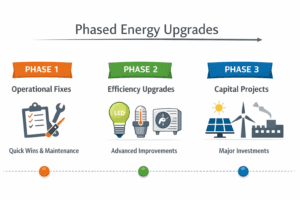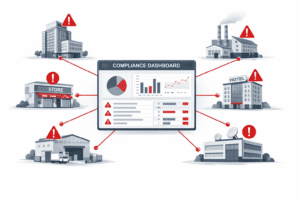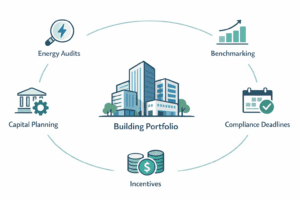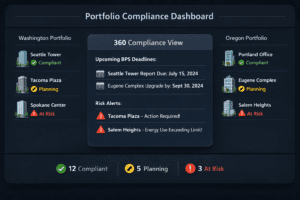Are you looking for ways to increase the sustainability of your business and reduce its carbon footprint? An energy audit is a great option to identify potential savings opportunities and provide valuable data about how best to improve efficiency. From tracking and benchmarking energy consumption progress, monitoring regulatory changes, and implementing cost-saving strategies, an energy audit provides an informed pathway toward a clean and green future. In this blog post, we’ll cover what an energy audit is and how it can help you save money in the long run by outlining our 2023 roadmap for successful energy audits.
What Is Energy Audit?
An energy audit is a powerful tool for understanding how you use energy in your building or business. It provides insight into how energy is used and how you can make changes to save money on your utility bills by minimizing waste. By analyzing things like insulation levels, heating and cooling systems, water usage, and other possible wasteful practices, an energy auditor can give you options on how to reduce your costs and carbon footprint.
They may recommend improvements like sealing air leaks, changing to more efficient appliances, using better insulation materials, etc. Not only could all this save you money in the long run, but it will help protect the environment too! In order to find certified individuals or companies who do energy audits in your area, be sure to check credible sources online or with local government officials.
Why is an Energy Audit Important?
An energy audit is a critical tool to improve energy efficiency in the home. By discovering areas of energy loss, energy audits can help you identify where you should make energy-saving upgrades or changes to your home. Most energy audits evaluate how energy is used in the building and how energy-efficient appliances are utilized. Performing an energy audit can uncover leaky windows, air leaks, poor insulation, drafts and other areas of energy usage that could be improved upon.
An energy audit will also provide information that can help lower utility bills while making your building more comfortable and eco-friendly. With this knowledge, you can make wise decisions about your energy usage and save money in the long run — making the energy audit a valuable step towards improving your home’s energy efficiency.
Roadmap to 2023 Energy Audit: What you need to know?
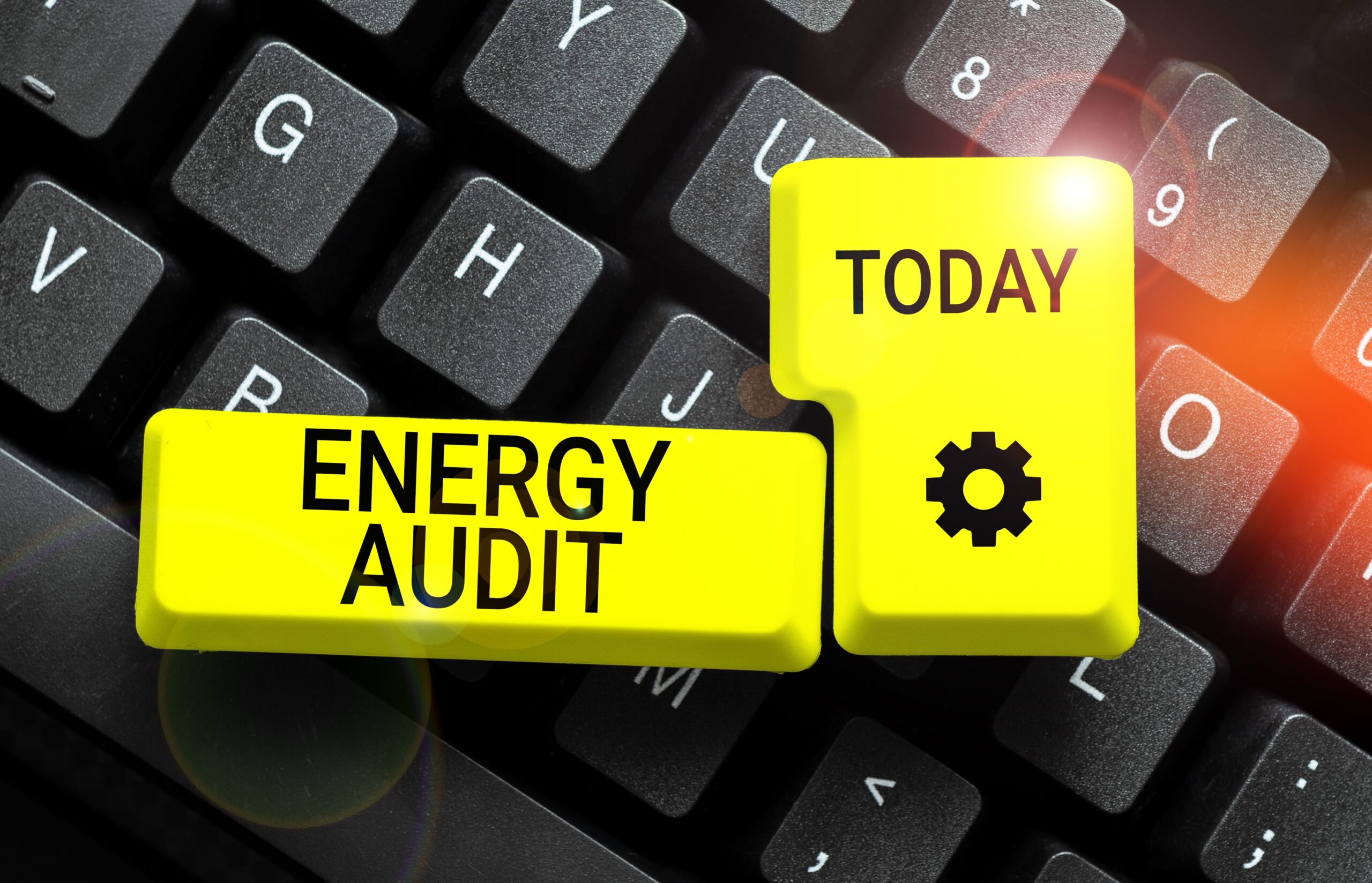
Professional energy auditing could be the answer if you want to reduce your energy use and environmental impact. A professional energy auditor will conduct an extensive professional energy assessment of your home or business facility, which looks at how much electricity, natural gas, propane, heating oil and other fuels are used on a daily basis.
The professional energy audit can then identify where your energy dollars are being spent most efficiently and help you determine where improvements can be made to reduce your overall energy bill. The professional assessment will also provide a 2023 roadmap to achieving those goals – from increased insulation to more efficient HVAC systems. With regular professional audits, you can identify any opportunities for savings and capitalize on them before they disappear.
Benefits of Energy Audits
Energy audits provide a comprehensive overview of an organization’s energy usage. They identify potential opportunities for improvement, help prioritize investments and monitor progress towards energy efficiency goals. Energy audits can also help to reduce operational costs, improve the safety and comfort of employees, and maximize energy consumption in buildings.
The primary benefit of an energy audit is the reduction of energy costs. By identifying and addressing inefficiencies, organizations can reduce their energy bills significantly. Energy audits also provide guidance on potential upgrades, such as switching to more efficient technology or replacing aging equipment.
Energy audits also help improve employee safety and comfort by identifying areas affecting indoor air quality or temperature control. Improperly installed or maintained HVAC systems can lead to excessive energy use and poor air quality that can result in health hazards. An energy audit helps identify these issues and provides solutions for improvement.
Finally, by identifying ways to maximize the efficiency of existing equipment and reduce waste, an energy audit can help organizations reach their sustainability goals. This could include replacing current lights with LED lighting, sealing air leaks, or installing occupancy sensors to control electricity use.
Overall, energy audits provide organizations with a comprehensive view of their energy usage and how it can be improved. By identifying opportunities for efficiency upgrades and reducing wasted energy, organizations can save energy and money, improve employee safety and comfort, and meet their sustainability goals.
The benefits of energy audits are numerous, from reducing costs to improving the performance and comfort of buildings. In addition to providing an assessment of current systems and practices, it also identifies potential areas for improvement that can help reduce energy consumption and costs. Furthermore, it helps organizations reach their sustainability goals by identifying areas to maximize energy efficiency. All organizations should consider conducting an energy audit for its numerous benefits. The cost and effort involved are well worth the savings in the long run.
Things To Include In A Energy Audit Report
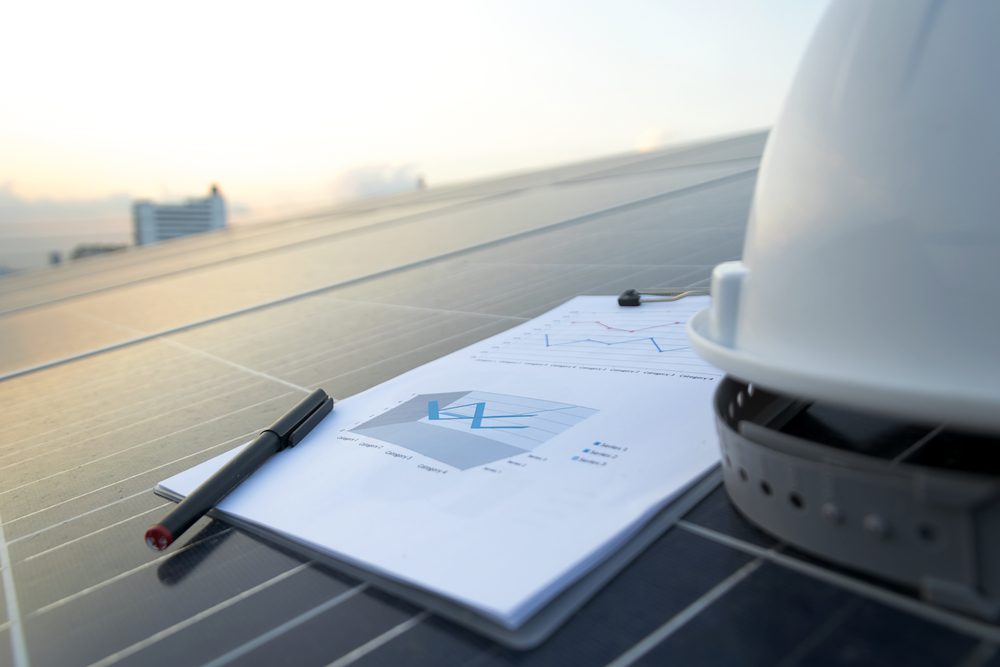
An energy audit report is a document prepared by an independent, certified auditor that accurately assesses an organization’s energy performance. It helps the organization identify cost-saving and safety issues related to their energy consumption. The report must include a wide range of information such as energy consumption and efficiency measures, any discrepancies between actual use and expected use, suggested optimizations to improve operations, opportunities to reduce costs and emissions, and recommendations to help the organization move towards greater sustainability.
Additionally, the report should also provide a detailed account of all the energy usage data compiled during the process. Energy auditing requires a comprehensive analysis of building systems and overall resource management, so details like these are essential in providing necessary insight into building performance. With these insights, businesses can make more informed decisions on managing their energy utilization while striving for improved operational efficiency and compliance with industry standards.
Things To Consider When Conducting An Energy Audit Assessment
When you conduct residential energy assessments, there are several factors that should be taken into consideration. Time is of the essence, and it is important to conduct an in-depth analysis of the building and its components to create a comprehensive strategy for energy efficiency.
It is essential to take an inventory of all existing systems and equipment that are installed in the building. This includes air conditioning, heating systems, insulation, windows and doors. It is also important to look at energy-using appliances such as refrigerators, freezers and dishwashers. All of these components should be inspected for signs of wear or damage that could be impacting energy efficiency.
In addition to a visual inspection, it is useful to conduct tests on the systems and appliances to measure levels of energy usage. Thermal imaging can be used to identify any air leaks in the building’s insulation or around windows and doors. This information can then be used to develop a plan for sealing these areas. Additionally, blower door tests can help assess air leakage rates and inform insulation recommendations.
Once all of the data is collected, it should be analyzed to identify areas where significant energy cost savings could be achieved. This analysis will help provide guidance on the most cost-effective solutions that can be put in place to improve the building’s overall energy efficiency and reduce its carbon footprint.
Finally, ensuring that the audit findings are communicated effectively to the building owner is important. This will help them understand how their individual building can be improved and, ultimately, promote greater energy efficiency.
Conclusion
Following these tips can help get your business on the right track to an energy audit. However, contact us at VertPro if you want professional assistance and guidance. We would be happy to chat with you about your unique needs and see how we can help your company achieve its energy goals.



